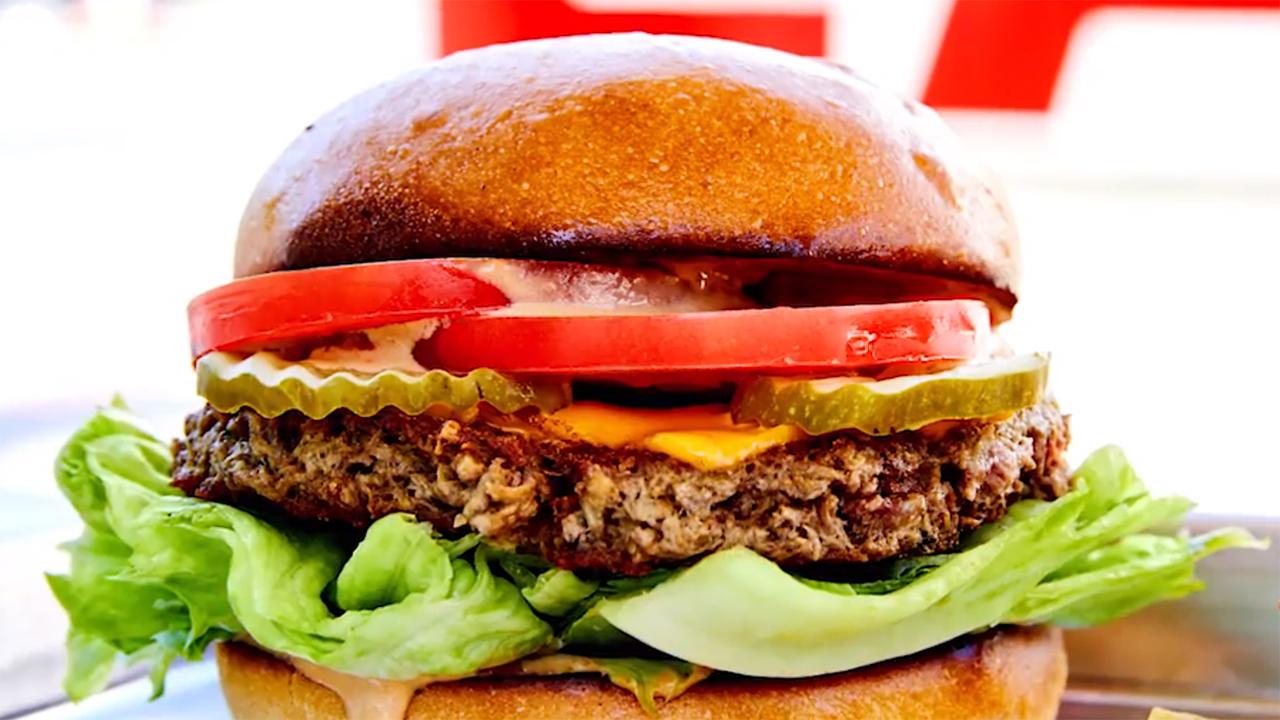Plant-based burgers may not be as healthy as you think
Plant-based burger makers say their burgers are better for the planet than beef burgers. But are they better for their consumers’ health?
Dr. Mike Varshavski, Family Medicine told FOX Business’ Maria Bartiromo on Friday, “I think they’re great for the environment. If we can reduce our animal consumption, that’s going to be a win right away because we reduce animal emissions.”
Red meat, such as hamburger, delivers health risks from too much carnitine, lecithin and choline, which change the bacteria in your gut to produce inflammation in your body. That can lead to an increased risk of heart attacks, strokes, cancer and brain dysfunction. A large study published in JAMA Internal Medicine found that eating one additional serving a day of unprocessed red meat over the decades-long course of the study raised the risk of mortality by 13 percent.
The Meatless Farm claims its products are "almost indistinguishable from meat in terms of taste and texture" and are 100 percent plant-based, which is basically the same thing that Beyond Meat and Impossible Foods say about their burgers. “The trick to all of these meatless burgers is they want them to taste like real meat in order to convert traditional meat-eaters. When they do that, they add processed chemicals to them, they add high sodium content to them because if something doesn’t taste salty, it doesn’t taste like real meat.”
Let's take a look at their ingredients and nutrition. Water, Soya Protein Concentrate, Pea Protein, Soya Protein Isolate, Rapeseed Oil, Shea Oil, Coconut Oil, Chicory Root Fiber, Thickener: Methyl Cellulose, Caramelized Carrot Concentrate, Carrot Fiber, Rice Protein, Salt, Flavoring, Vegetable and Fruit Extracts (Beetroot, Radish, Tomato), Yeast Extracts, Carrot Concentrate, Emulsifier: Soya Lecithin, Antioxidant: Ascorbic Acid, Vitamins and Minerals (Niacin, Zinc, Iron, Vitamin B6, Vitamin B12, Vitamin B1, Vitamin B12)
“From a nutritional aspect: this is still an indulgence. This is a processed food. This is a junk food. It just happens to be a vegetarian or vegan junk food. We have to be aware of that because there’s high sodium content, still high saturated fat content, high-calorie content,” Dr. Mike said.
So, while you can opt for a meaty-flavored veggie burger occasionally, they may not be the healthy alternative you’re seeking.
“We call this effect in medicine the halo effect, just because it’s labeled a ‘health food’. Meatless burgers are still not health food. This is an indulgence, it’s a snack, it’s a processed food, it’s not something I generally recommend." Dr. Mike said.
CLICK HERE TO GET THE FOX BUSINESS APP
Instead, Dr. Mike suggests the following “this isn’t necessarily a diet issue. This is more of a risk, reduction. If you’re eating three burgers a week and you want to reduce your animal intake, please have a meatless burger and reduce it. But ideally, I want to just get people off of eating junk food. It’s whole foods that are going to get you healthy.”




















